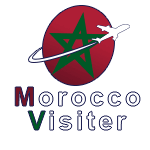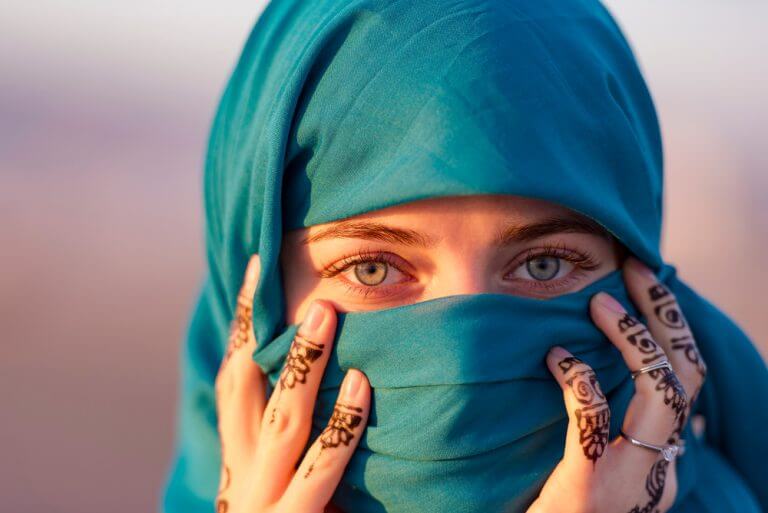
Morocco Women: All You Need to Know About Them!
Morocco is home to respectful and humble people, and it is considered one of the oldest in tradition and beholder of diverse cultures. Its women are also known worldwide for their beauty and overwhelming femininity, where they rely mainly on natural ingredients left by their ancestors to take care of their bodies.
Morocco women had their share of injustice throughout the years; despite this, they made tremendous achievements in various fields and have proven that they have and will always be the backbone of society.
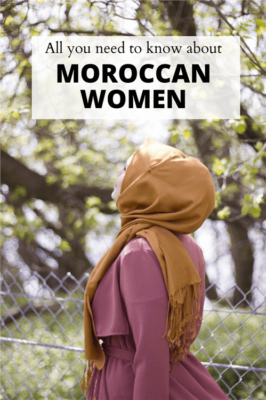
Table of Contents
History of Morocco Women
Before the advent of Islam, most of the women in Morocco were Amazigh women. The indigenous Moroccan women of that time have already assumed significant roles like Kahina, a Berber queen, and a military leader. She led the Amazigh resistance against the Arab and Muslim conquest. After the expansion, women had significant roles in establishing Islamic institutions that continue to function today, like the oldest university in the world founded by Fatima Al-Fihri.
Moroccan women always stood firm and fought for what they believed in; they played a vital role in resisting the French colonization, some of them with storytelling and politics such as Malika Al-Fassi, and others with armed resistance such as Fatima Roudania. History respects those great women by carving their names in different historical literature.
After they got their independence in 1956 from the French, Moroccan women were on the top grounds of literature, education, politics, and many other fields. Numerous big names emerged like:
- Fatima Mernissi, founder of Islamic feminism.
- Nawal El Moutawakel, first Arab woman to win an Olympic gold medal.
- The astronomer Merieme Chadid, the first Arab woman to set foot in Antarctica.
- Aicha Chenna
- Leila Abouzeid
- Latifa Baka
- Khnata Bennouna
- Farida Diouri
- Bahaa Trabelsi
- Lalla Essaydi
- Samira Said
- Naima Samih
- …and the list goes on.

Why are Moroccan women so desirable?
Moroccan women became famous for their beauty and overwhelming femininity, which made the Gulf man particularly, and the Arab man generally prefers traditional Moroccan woman to be his wife. Many rumors have spread accusing her of resorting to twisted methods like black magic to win the man’s heart and be more desirable. They are nothing but customs and traditions they’ve learned since childhood:
- Every Moroccan woman is an excellent chef: It is a tradition in Morocco for a woman to learn cooking at a young age. And by the time she reaches her 20s, she has already mastered every recipe from her mother. So don’t be surprised when you meet a mayor who can cook.
- No expectation before marriage: Moroccans follow Islamic teachings that most of their women respect and follow. It is widespread for traditional Morocco women to be virgins, and they are only interested in serious relationships that lead to marriage before sex.
- Her husband has the highest priority: The Moroccan woman learns from her mother and grandmother that her husband should have the top place in her life. It is rare to find a Moroccan wife on a shopping trip or hanging out with friends while her husband is home unless he insists that she do so.
- A Moroccan woman is the queen of her house: She always finds time to take care of her beauty, using mainly natural beauty mixtures she learned from her mother. She doesn’t rely on maids or babysitters, and she’s always ready to quit her job for the sake of her family.
9 Must-Know Beauty Secrets of Morocco Women
Moroccan women have been known since ancient times for their exceptional beauty that makes them distinctive. They resort to natural ingredients, homemade beauty remedies, and few beauty regimes. These secrets stand behind the beauty of the skin and hair of every Moroccan woman. Here are seven aesthetic secrets that they follow to take care of their beauty.
1. Argan oil
Argan oil is one of the most popular oils used by Morocco women. It carries many benefits to obtain free of impurities and healthy hair. It moisturizes the skin, treats wrinkles, and fights acne. In addition to preventing hair loss, it moisturizes the strands and gives them an unparalleled shine.
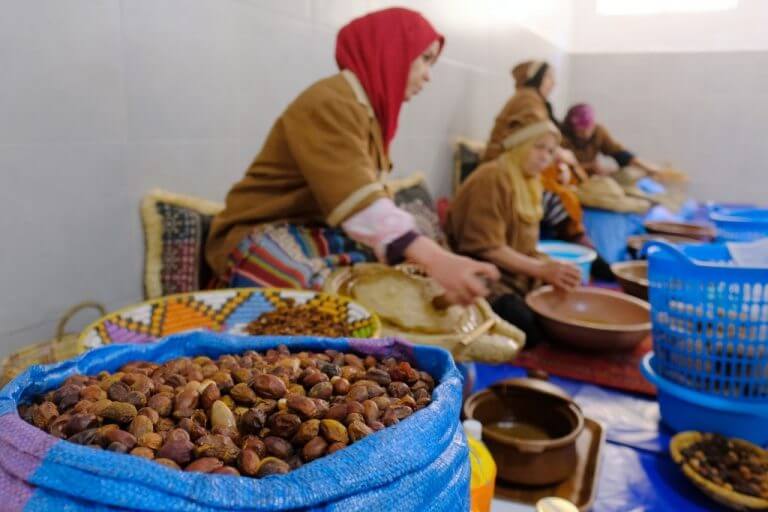
2. Rose water
Moroccan women pick Damask roses found in the Valley of the roses, then they crash, steam, and distill its rose petals to create oil vapor and water vapor. After cooling the steam, it yields both rose oil and rose water.
In addition to the beautiful scent, rosewater is excellent for cleansing, hydrating, soothing, and toning the skin. It could also be used as an anti-aging serum and as a makeup remover.
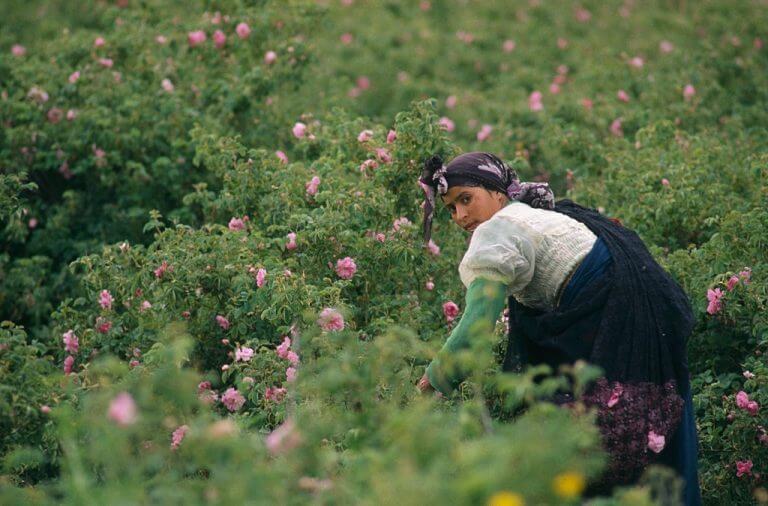
3. Ghassoul clay
Moroccan women use Ghassoul clay extracted from the Atlas Mountain soil to care for their skin and hair (white clay, green clay, red clay, yellow clay, pink clay, blue clay, and grey clay). It helps to regenerate skin cells, reduce accumulated oils, reduce skin irritation and redness, eliminate pigmentation, and unify skin color.
Ghassoul clay also helps clean hair from dirt, fight hair loss, intensify it, and regulate sebum secretion in the scalp. Morocco women like to add rosewater to it to hydrate dry hair and create a glowing look.
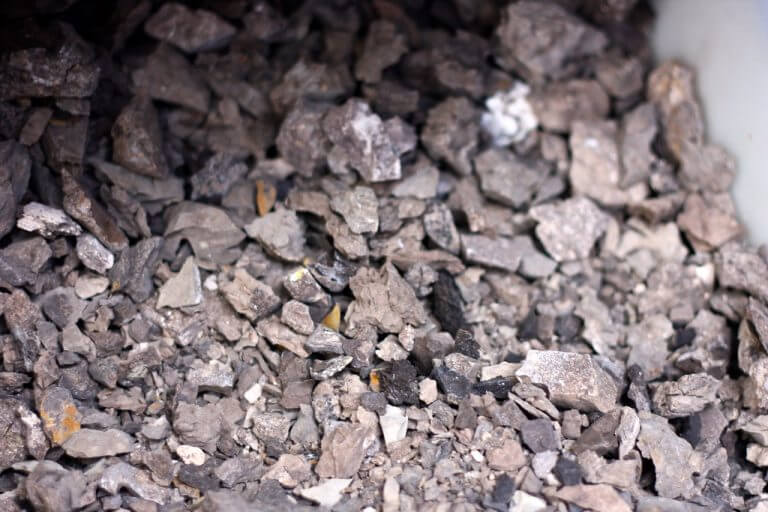
4. Black Soap
The black soap, also known as Beldi soap, is one of the lotions prepared by Morocco women, and it is always the first thing they use when they go to Hammam. It contains olive oil, mashed Moroccan olives, salt, argan oil, eucalyptus extracts, and castor oil. Moroccan women use black soap to cleanse, exfoliate, and nourish their skin.
This soap is very rich in vitamin E, which helps purify and moisturize the skin. It’s reported to contain nourishing properties that delay wrinkles’ appearance and fight against dullness and dehydration. Some women use essential oils, eucalyptus, rosemary, or peppermint to enrich the black soap.
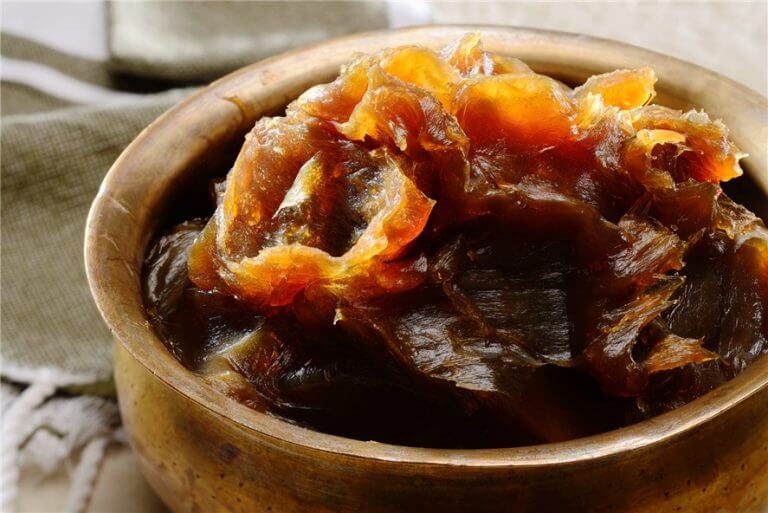
5. Blue Nila
There are several ways to use the Moroccan Blue Nila and apply it to the skin. It is the main component of many mixtures used in whitening the skin, eliminating blackheads and excess fat as it cleans the skin deeply, preventing acne and tightening flabby skin.
Moroccan Blue Nila also has anti-inflammatory properties and a significant role in healing some skin diseases such as eczema and psoriasis. Morocco women’s famous recipe is mixing the Blue Nila with a natural yogurt without sugar, milk powder, and lemon.
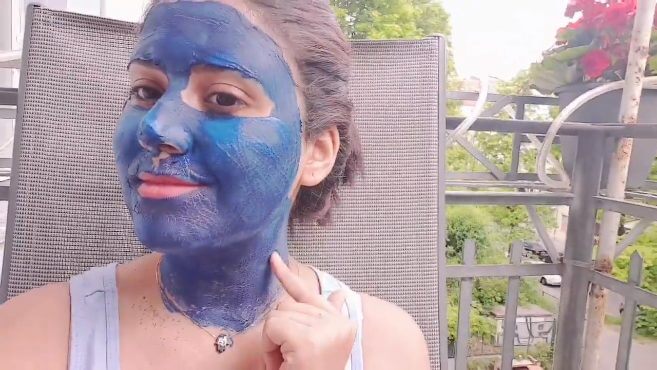
6. Henna
Using Henna is a prevalent tradition in Morocco; women use it to draw beautiful designs on their hands and feet, or they use it on their hair to purify it, prevent hair loss, dandruff, and hair aging. It also thickens and strengthens the hair.
Henna is also used to dye the hair as it gives an orange-reddish color depending on the hair color if it’s used pure.
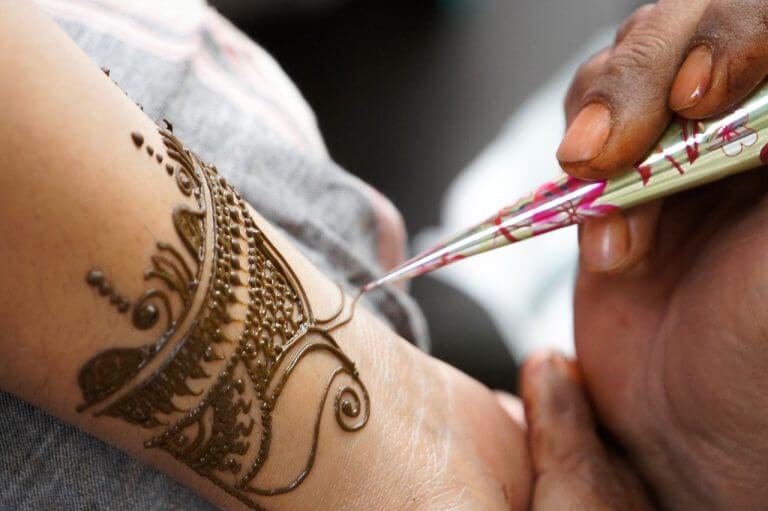
7. Prickly Pear
Prickly pear is a popular and cheap fruit in Morocco. It contains the highest amount of vitamin E compared to other oils and some antioxidant properties that fight free radicals created by pollution and sun exposure. It also helps reduce scarring, acne, stretch marks, and protects from aging and wrinkles.
Sidi Ifni is known as Morocco’s cactus capital, but it also grows and thrives in the Sahara Desert’s harsh weather conditions, where it is used for skin hydration and as a protectant from the sun.
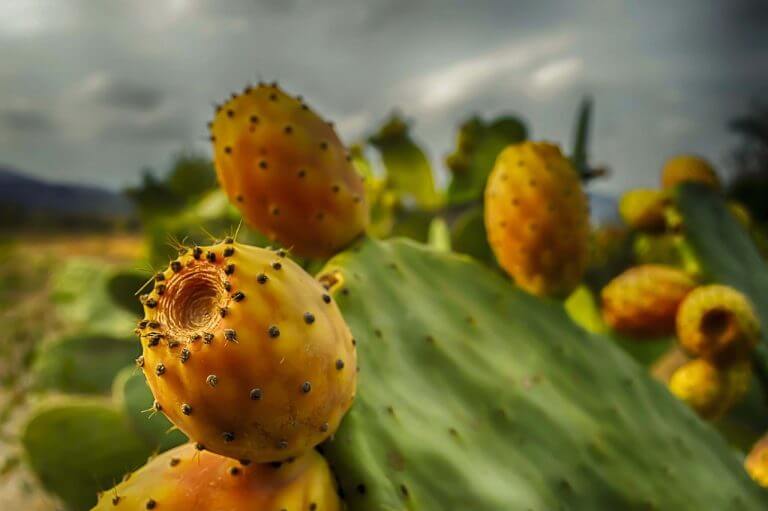
8. Hammam
Hammam is a famous aesthetic tradition in Morocco that cleanse the skin from the depths to give it unparalleled smoothness and freshness. It’s like a spa with multiple rooms, and each room has its temperature. Morocco women bath at least once a week in Hammam to remove dead skin, but it also works on anti-aging, re-balancing oil secretions in the skin, and improving skin elasticity. It also helps to relax, promotes blood circulation, and relieves muscle tension.
To remove dead cells, Moroccan women apply the black soap first to their whole body (some women like to apply Henna before it); after washing it, they use a special glove called “Kessa” to exfoliate their skin and scrub off the dead cells. And to finish their ritual, they drink a cup of tea once at home.
9. Moroccan Tea
Moroccan tea is one of the most popular drinks in Morocco and is more popular due to its many benefits. It contains antioxidants that protect against several diseases.
Moroccan tea also plays a vital role in burning fat, getting rid of cellulite, and speeding up the metabolism process. It contributes to improving skin and hair health, as it contains many vitamins that are beneficial for beauty.
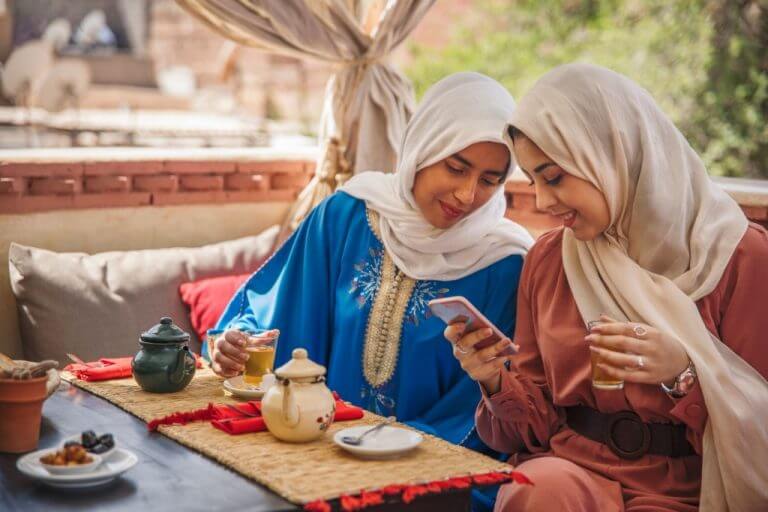
Moroccan Women and Their Lifestyle
Diversity of tribes
Morocco women are not just Arabs, but most of them are from Berber tribes. Although most of them are Muslims, foreigners are also accepted and welcomed to observe their culture. Since Morocco has a history of Spanish and French influence, they have always been used to meeting new women from other religions and always welcome them.
People seem to believe that their origin is that of Africa. However, there is not much evidence. But the diversity in tribes and their populations gives us a hint that they are from migrated tribes and have a significant influence of Berbers and Arabs. Their history contains fragments from the time Islam started.
Education of Women
The country has had a low education ratio regarding Moroccan women; however, this number has increased by up to 43% in recent years. The government has been showing improvement, and the women have access to education, which shows that they aren’t in and oppressed society and have the choice of getting whatever education they like.
Cultural Clothes Which Enhance Their Beauty
Moroccan women are the true beholders of ethnic beauty and sophistication. Their cultural art and clothing enhance their ethnic beauty. They belong to a group of people who believe in natural beauty, so they embrace even women with dark skin tones and tend to stay away from modern surgeries and other artificial things. Their ancestors have left them with beauty remedies from the past, and they work well on their skin.
Their Clothing and Lifestyle
Morocco women are observed wearing traditional Arab clothing; however, their culture expands much more than that. They have many kinds of clothes for different occasions, like Gandora, Kaftan, Tackchita, Abaya, and Tahruyt.
Most of these clothing items are made so that they are covered from head to toe. However, most women from urban areas don’t wear such clothes; they tend to wear more half-sleeves and even knee-length skirts, but the elders and conservative people do not appreciate them.
What’s It Like Living as A Moroccan Woman?
In the words of a native Morocco woman, living a life here is a bittersweet experience. Most Moroccan women are not pampered unless they belong to influential or respected families, but they all have complete liberty to study whatever they want and choose. And since it’s an Islamic country, all the mentioned information is confined within Islam’s limits, which they all respect.
Women are given the liberty to choose their life partners, take divorce, and have a say in the family matters. They also have significant political influence and are given higher posts in the government offices. But all of this is common in the urban settlement, not in rural areas.
Final thoughts on women in Morocco
Morocco is a country where women are respected and given rights according to the laws of Islam. Some foreigners might consider it as confining women, but the Moroccan women respect the religion and follow it happily. This land of magnificent mosques, sandy dunes, and historical monuments is also a land of beauty and simplicity.
Women here are the perfect embodiment of natural and raw beauty with great moral values and etiquettes. This place is revolutionizing by the day in terms of women’s rights and education. Maybe in the future, we will even see them prosper in the fields dominated by men.
